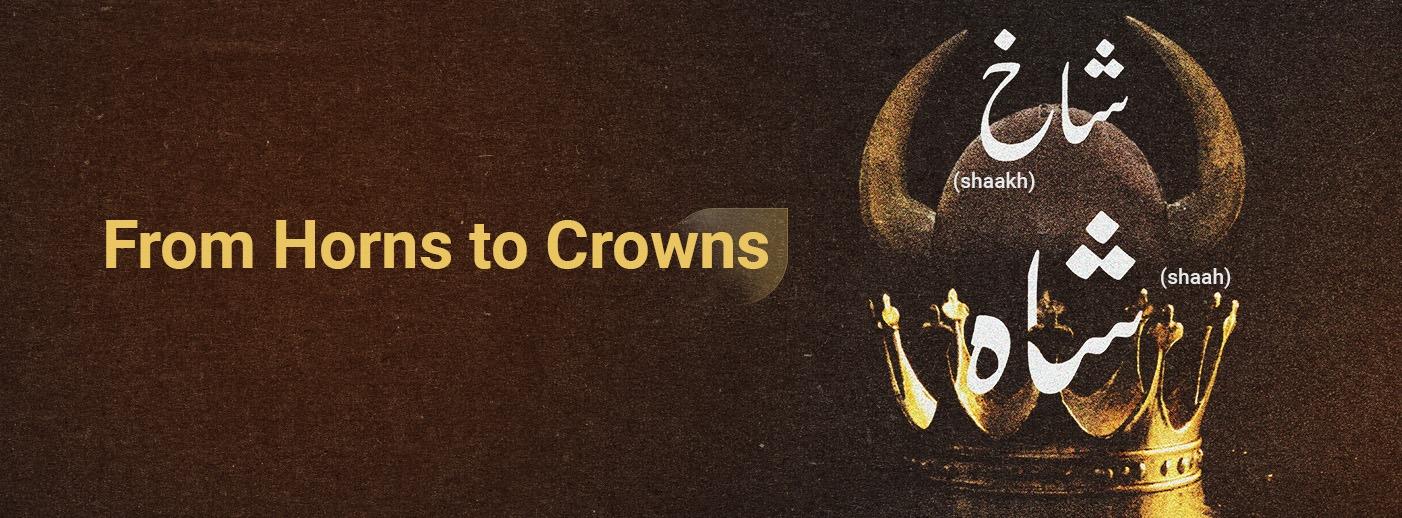Top searched
Saved words
khisyaanii billii khambaa noche
an embarrassed or ashamed person tends to vent his/her feeling by quarrelling
be-niyaaz
without want, free from want, wanting nothing, not in need, able to dispense, independent, carefree
From Horns to Crowns

Words are not merely inanimate objects; they possess their own essence and a life of their own, marked by a myriad of ups and downs. Within them lies a unique drama and a form of romance. Behind words, astonishing stories, traditions, and historical truths remain concealed.
Take, for instance, the familiar terms for a king or emperor: Shah and Baadshaah. While these words are well-known to you, have you ever thought that the words شاہ (shaah) and بادشاہ (baadshaah) might also have a connection with the word سینگ (seeng), meaning horn or antler?
In ancient times, when humans lived in jungles, they would hunt wild animals to feed themselves. However, hunting animals with horns required great skill and agility. When they successfully hunted such an animal, they would celebrate by wearing the horns on their heads.
Even today, in some tribal areas of Madhya Pradesh (India), it's a tradition to wear horns on one's head and dance. In ancient Iran, it was a custom for leaders to wear horns on their heads, which might have eventually evolved into the tradition of wearing crowns. In Persian, the word for horn is shaakh. A leader who wore horns was called shaakh, which eventually became shaah.
The word shaakhsaana شاخسانہ is also derived from shaakh. Word shaakhsaana means dispute, controvercy , difficulty , intimidation or chaos. the phrase owes its origin to an old Iranian custom. In ancient Iran, beggars who would carry a goat's horn and a piece of bone from a goat's shoulder, (word used for shoulder in Persian and Urdu is شانہ ‘shaana). They would rub these objects together to produce a loud, unpleasant sound, forcing people to give them money to make them stop. If someone refused, they would hurt themselves with the horn and create a scene until the person gave in. Over time, the term shaakhsaana came to be used for trouble, threat or chaos, but this word is also used for offshoot. Since shaakh also means a branch.
The word shaah is used in many compound words, such as:
shaah-raahشاہراہ : highway
shahanshaah شہنشاہ : king of kings, emperor
An abridgement of this word, شہ (shah), is also used, especially in many compound words. For example, the word شہپر ‘sahpar’ means the principal feather in a bird's wing.
The word شہ رگ shah-rag is used for the jugular vein or something very important — something on which life depends.
shah-tiir شہتیر: the large beam (of a house)
shaah-naama شاہنامہ : the epic that describes the king of a particular state. Metaphorically, Firdausi's epic, which describes the kings of Iran.
shah-savaar شہسوار : horse rider / horseman
Delete 44 saved words?
Do you really want to delete these records? This process cannot be undone





